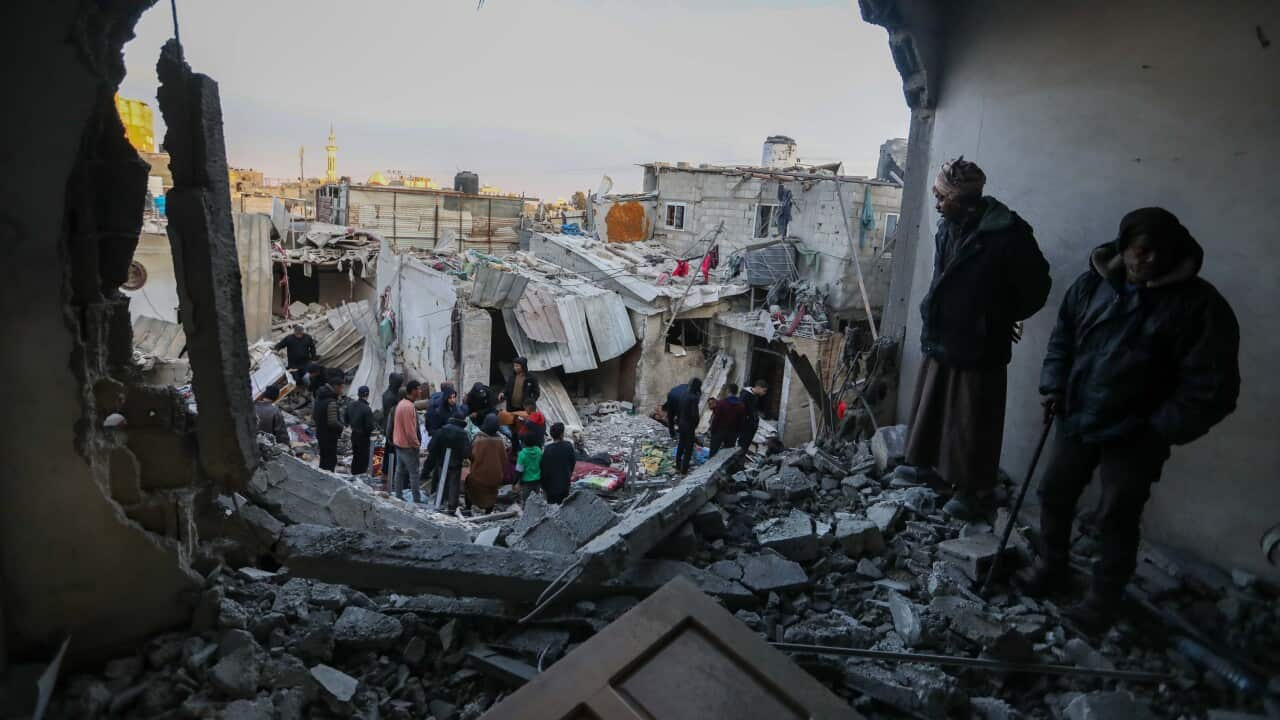When Plestia Alaqad stepped onto the stage, Sydney’s Town Hall roared to life. Around 2,000 people rose to their feet to cheer for a 22-year-old woman who has stumbled into the global spotlight.
Alaqad, a famous Gaza journalist, has spoken publicly in Australia for the first time since she fled the war-torn enclave at a spoken word event, Bankstown Poetry Slam's grand final on Monday night.
Reading poems and an excerpt from her diary while she was in Gaza, she explained that having eggs in the fridge was a symbol of safety.
"When there are eggs, there is breakfast, lunch, and dinner," she said.
"I can't imagine it's day 28. 28 days of literal hell," she read, from an earlier entry. "Gaza is reaching a point where it's running out of food — and eggs — and water."
She said she joked with her colleagues that people would start eating leaves. Now, she said, it doesn't feel like a joke anymore.
"Only in Gaza, you sleep counting rockets rather than stars. You wake up — if you woke up — on the sounds of bombs rather than birds.
"I'll never get used to blood. I'll never get used to seeing my people getting killed. I'll never get used to seeing my people walking in the streets with bags filled with anything they could take from what’s left of their homes. And people walking with pillows in the streets, not knowing where they will go or where will they sleep.
"I can't find any words to describe how I'm feeling or what's happening. What more can I say or show?"
Alaqad graduated with a media degree just months before the 7 October attacks on Israel. Not long later, she found herself in a press vest and helmet, thrust into one of the most destructive warzones in recent history.
Since then, she has racked up nearly five million followers on Instagram, because her posts provide a rare insight into what it's like on the ground in Gaza, often documenting raw, confronting scenes of pain and bloodshed.
Alaqad moved to Melbourne in November when she and her family were sponsored by their uncle and received temporary visas from the federal government.

Sydney's Town Hall was sold out with 2,000 people attending, many solely to hear Plestia Alaqad's performance. Source: SBS News
"I'm Iraqi, but Palestinians are still my people and I'm so happy to see Plestia. I'm glad she's alive," she told SBS News.
Another attendee, Rebecca, flew from Melbourne to Sydney to attend her first poetry slam event.
Her reason for coming? "Definitely Plestia," she said.
"I felt a lot of what she felt. Seeing her on social media, and now seeing her in person, it was really touching."
The event showcased 20 people performing spoken word poetry on themes including racism, mental health, community affairs and issues relating to Gaza.
Bankstown Poetry Slam co-founder Sara Mansour, a NSW Young Australian of the Year 2024 finalist, said it was an "honour" to host Alaqad.

Bankstown Poetry Slam co-founder Sara Mansour says the organisation supports a diversity of perspectives on stage. Source: SBS News
"As long as they are not hateful or prejudiced or bigoted or racist or Islamophobic, transphobic, antisemitic, or any of those things, then diverse perspectives deserve to be heard."
Gaza has been under strict a Israeli blockade of people and goods since 2006, after Hamas won parliamentary elections in the strip. But since the 7 October attacks, the blockade has been tightened even further — with a ban on foreign journalists entering Gaza.
More than 28,000 people have been killed in Gaza since Israel's bombardment started on 7 October, according to Gaza health officials.
The escalation in conflict came after an attack on Israel by Hamas in which more than 1,200 people were killed and more than 240 taken hostage, according to Israeli tallies.
The Hamas-Israel war has been one of the deadliest conflicts for journalists since the Committee to Protect Journalists (CPJ) began taking records 30 years ago.
As of Sunday, the CPJ's preliminary investigations show at least 85 journalists have been confirmed killed since the war started.



